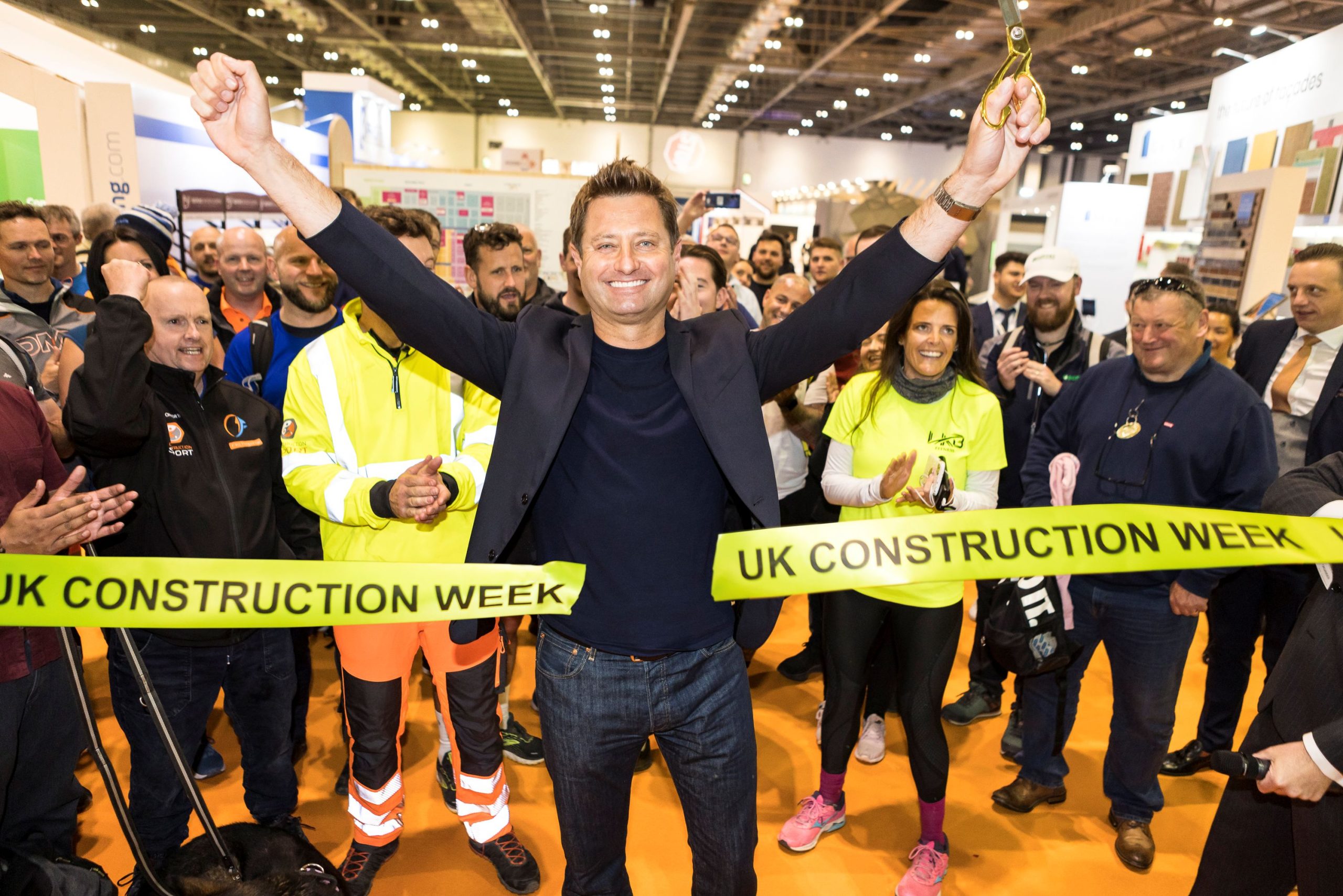Q&A with UKCW ambassador George Clarke
 George Clarke, UK Construction Week
George Clarke, UK Construction Week
Architect, television presenter, lecturer and writer, George Clarke has been an ambassador of UK Construction Week since its inception in 2015. As the UK’s largest event for the built environment celebrates its 10th anniversary at the NEC, Birmingham from September 30th to October 2nd, George reflects on the show’s history – and what’s needed to secure a bright future for the industry.
The 2025 event marks your tenth year as UK Construction Week’s ambassador. What key moments or highlights come to mind from your time at UKCW?
The first day we launched the very first event was the highlight for me. It was a special day that marked the beginning of an exciting journey. It’s incredible that we have been going for 10 years and I feel honoured to have been representing the show for every one of those 10 years. But Day One, 10 years ago, was very special.
Standout speakers? Who have you enjoyed meeting/speaking to?
I always enjoy my talks with David Hancock who leads the government construction team and chairs the Government Construction Board. He’s a top man and a great ambassador for the event. It’s always good when we get ministers there too. They add a lot of credibility to the events and we’ve covered everything from infrastructure to skills.
What are the key ingredients to the success of UKCW?
The people who come to visit, the exhibitors, and having generous sponsors too. Without the three there is no event!
What gives you the most pleasure when you come to the show?
Meeting people and networking. It’s amazing to meet so many people of such diversity and with such varied careers under one roof.
In your opinion, what have been the biggest changes or moments in construction in the last 10 years?
The change in government was the biggest moment, really. We needed a change and reset in the construction industry, and we needed to get a lot of confidence back. Of course it’s been tough (the construction industry has and always will have its challenges!) but I think the change of government was much needed. They now need to work with us to deliver!
Looking ahead to the next 10 years, what are the key challenges that the industry faces?
- Getting young people into the industry – apprenticeships. I’m a big ambassador for apprenticeships but recruiting and retaining apprentices is not easy at the moment. 50% of all apprentices don’t complete their apprenticeships and that is a big problem the entire industry needs to come together to address.
- Avoiding a boom and bust construction economy. We need a steady and stable stream of work.
- We need the government to support the industry with a long-term plan and stick to it.
- We need a radical future homes standard to transform UK housing.
What has being part of UK Construction Week for the past decade taught you about where the industry is headed – and what excites you most about this year’s show?
UKCW has always led the debate and been ahead of the curve, and this year promises to be no exception. The roles of MMC and AI are increasing, but as an industry it’s vital that we don’t take our eyes off the issues of the skills gap and mental health – both of which will be discussed in Birmingham.
With my background, I’m most excited and interested in all things housing – from a discussion on delivering affordable, sustainable homes at scale on the Main Stage, to the myriad talks on the Housing Stage – on affordable modular housing solutions, solving the housing crisis, Planning Reform – the list goes on!
This year’s show theme is ‘where decisions are made’, and that’s very much what UKCW is all about – face to face discussions and deals; you can’t beat real world interaction.
Over the last 10 years of UKCW, the concept of ‘home’ has evolved dramatically—from pandemic-era flexibility to climate resilience. What do you believe the next decade of UK homes should look like?
Future homes standard. We must push UK housing to help us on the road to Net Zero. Home heating is a massive part of UK home emissions…..yes, there is a lot of carbon in the construction of homes, but there is so much more carbon used in the lifespan of a home.
You’ve used your UKCW platform to challenge outdated thinking on housing delivery. What urgent reforms do we need now in planning, land use, or funding to unlock real change?
Planning reform is desperately needed and the government has committed to that. But we need it fast. We need to free up planners from becoming bogged down in small-scale planning applications.
That means new ‘permitted development rights’. We need to improve design standards in UK housing. I’m not sure if there is a clear plan for the estates and villages of the future. We need to create a new generation of innovative and net zero carbon new towns.
We need to maximise our brownfield sites and free up areas of ‘green belt’ land that really shouldn’t be categorised as green belt. Not all green belt land is particularly green and could be used for quality housing. The government really needs to address the massive affordability crisis too. The housing crisis has gone on for far too long, so we need a 30-year strategy to build at least 100,000 genuinely affordable homes for social rent to replace the massive council housing stock we have lost over the last 40 years.
UKCW has spotlighted modern methods of construction (MMC) for years. As an advocate, what progress are we making—and what’s still holding us back from mainstream adoption?
Capital investment. Modern methods of construction are fantastic and exciting but it needs a huge amount of capital investment and research and development to make innovative changes. MMC can work well in lots of government projects such as schools, prisons and hospitals and the government is backing this. With housing we really need to improve the quality of mass new build home developments. Whether MMC can help with that remains to be seen.



